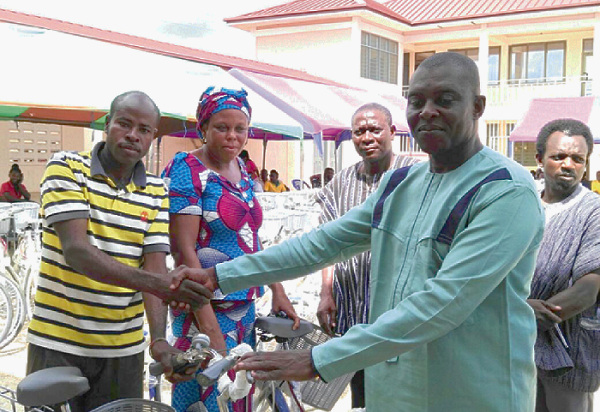
Over 8,000 children enrolled on formal education through CBE
A total of 8,252 children have been enrolled for formal education in four deprived districts in the Northern Region, through a Complementary Based Education (CBE) programme.
Advertisement
The children, including 48 per cent females, are from the Sawla-Tuna-Kalba, Bole, East Gonja and Kpandai districts.
This was out of a total of 16,464 children between the ages of eight and 14, who completed a nine-month course under which they were taught basic skills in writing and reading to get them prepared for school.
Since 2013, Ibis Ghana, a non-governmental organisation (NGO), with assistance from the Department for International Development (DFID) and the government, started the CBE programme to get children between those ages who were out of school to go back to school.
Introduction of CBE
Most of these children were employed by their parents in various economic activities such as farming, trading and herding of animals in the districts. Thus, the CBE was introduced to educate them during their leisure periods in reading and numeracy to get them prepared for formal education. This is implemented through a system of employing voluntary facilitators to teach them.
All these came to light at a joint end-of-service award ceremony to show appreciation to a total of 320 facilitators, held at Sawla in the STK District last Tuesday.
At the ceremony, 195 of the facilitators who completed the nine-month programme were each presented with a bicycle while 125 of the facilitators who could not complete the programme were given half the amount of a bicycle. A total amount of GH¢114,900 was spent on the awards ceremony for the facilitators.
Scholarships for facilitators
At the function, the Ibis Programme Facilitator, Mr Salia Adamu, said as a further assistance to the facilitators who were mostly senior high school students, they were ready to pay half the cost of their tuition at the tertiary level or half the cost of bettering their academic grades.
Challenges
Mr Adamu mentioned some of the challenges facing them as poor road network, inadequate facilitators, especially females, in some of the communities, elopement of girls, absenteeism by facilitators, inadequate classroom accommodation to keep the number of children enrolled for the programme, as well as unfavourable socio-economic and cultural factors, especially in the hard-to-reach areas.
The District Chief Executive for Sawla-Tuna-Kalba, Alhaji Mumuni Isaac Dramani, expressed concern about the shortage of trained teachers and inadequate classrooms in the area and said in view of that, the assembly, while sponsoring some students to some colleges of education to come back to fill the vacancies, would make provision for the children to continue their education in the district.
The Sawla-Tuna-Kalba District Director of Education (GES), Mr James Ewuntomah, commended Ibis and its partners for their efforts at sending the children back to the classrooms.



